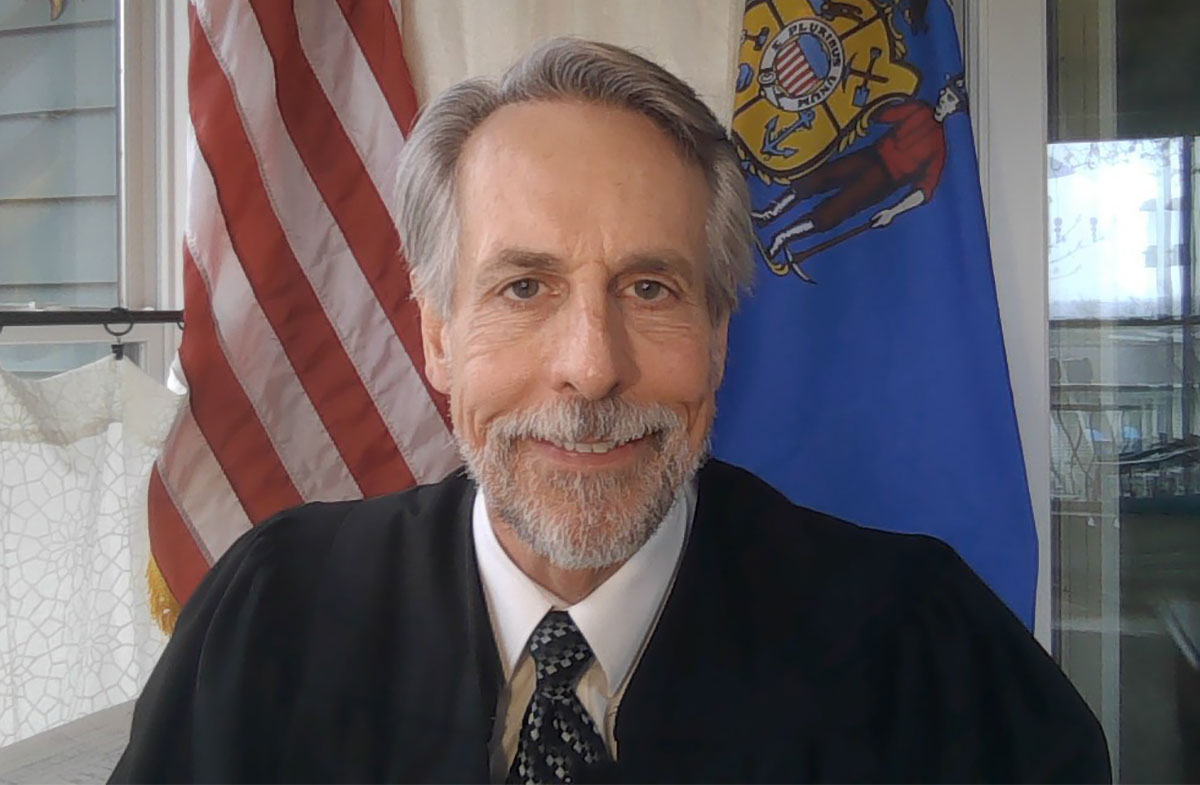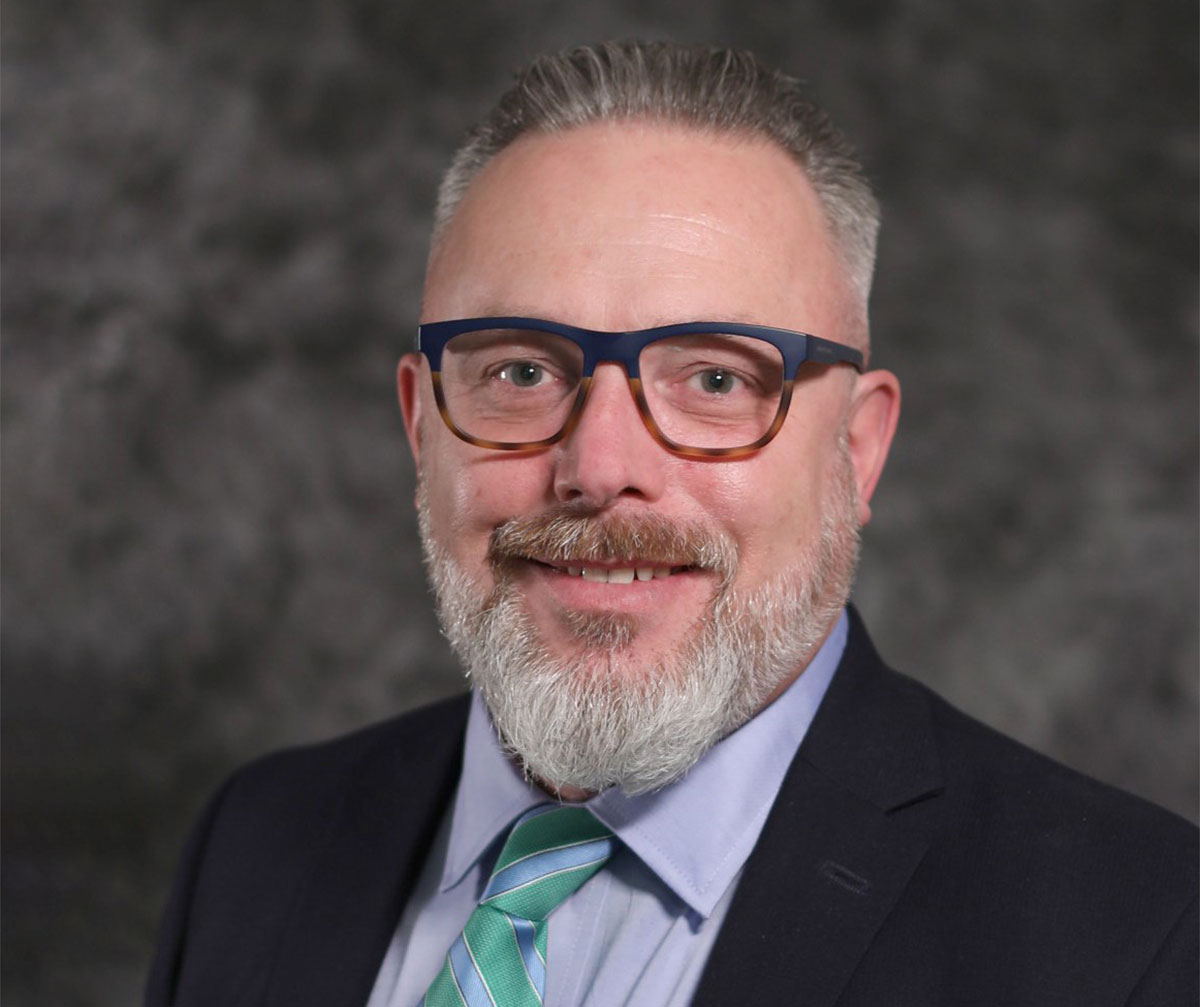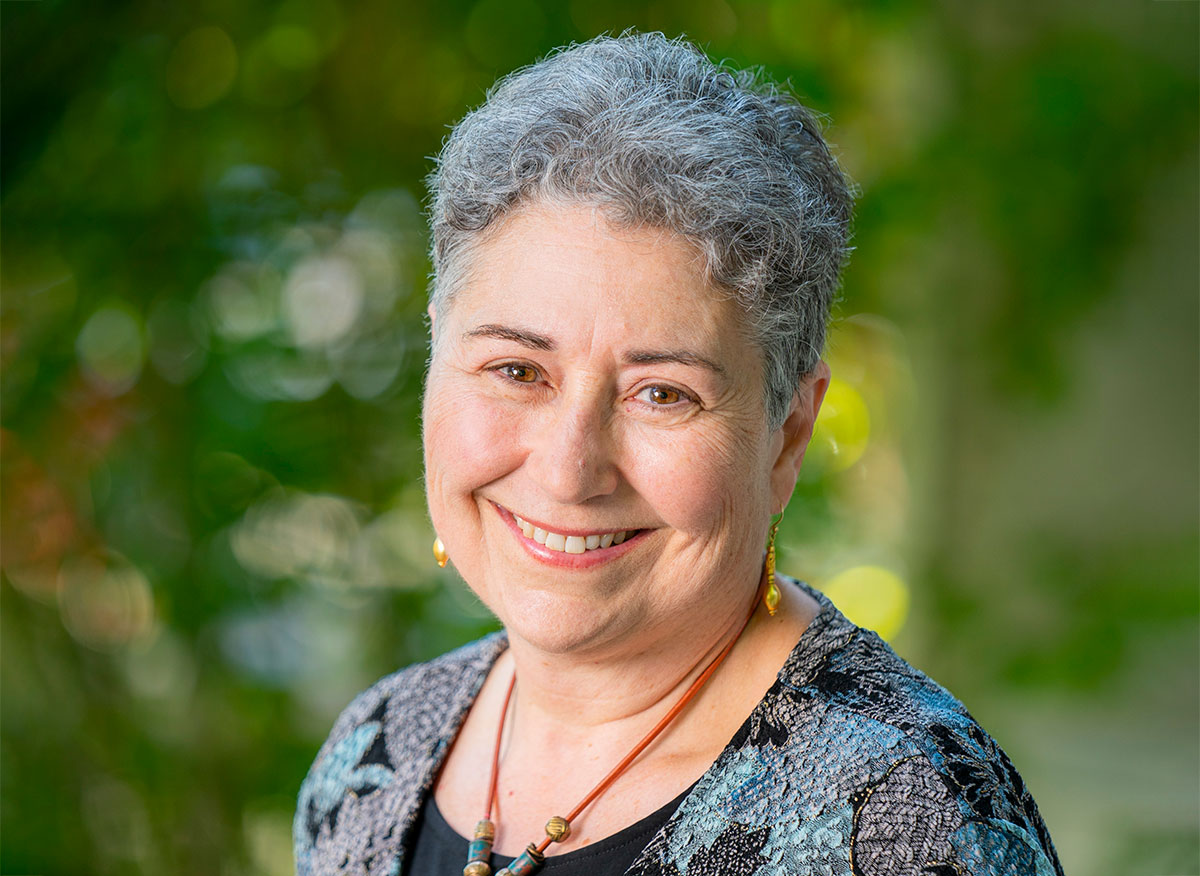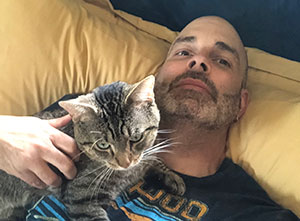
The headline hit with a force unusual in legal reporting: “‘Big Law Killed My Husband’: An Open Letter From a Sidley Partner’s Widow.”
In the article, Joanna Litt catalogued in heartbreaking detail the downward spiral of her husband, Gabe MacConaill, a partner at Sidley Austin who killed himself at the age of 42.1
Litt, also a lawyer, made a desperate search for answers in the wake of her husband’s death. She concluded that he suffered from maladaptive perfectionism, a condition that combines unattainably high standards with harsh self-criticism.
“Simply put, he would rather die than live with the consequences of people thinking he was a failure,” Litt wrote.
Slings and Arrows
Perfectionism is one of many hazards that threaten lawyers’ well-being. Others include frequent deadlines, clients’ expectations, the slings and arrows of the adversarial system, and Big Law elevating the billable hour over other considerations.
Add these all up, and the result is a mental health crisis, one the Task Force on Wisconsin Lawyer Well-Being and the State Bar of Wisconsin, convened in July 2020 under the auspices of the Wisconsin Supreme Court, set out to address.
Key goals animating the task force’s work were:
Preventing harm to the public and other lawyers;
Enabling lawyers to thrive, rather than merely survive;
Highlighting proactive strategies to promote well-being;
Undoing the stigma that too often keeps lawyers from seeking help; and
Making lawyers aware of their colleagues’ struggles.
The 46-member task force, which was organized into seven subcommittees, issued its report in December 2021.2 [See sidebar for a list of the task force members.]
A Raft of Recommendations
The report makes 72 recommendations, broken down by industry sector: all stakeholders, the judiciary, regulators, law schools, and the State Bar of Wisconsin and WisLAP; and topic: making the business case for well-being and diversity and inclusion. [A column about the business case for lawyer well-being appears elsewhere in this issue.]
The recommendations are designed to help lawyers maintain well-being across all dimensions of their lives – emotional, occupational, intellectual, spiritual, physical, and social.
The recommendations range from broad (increase civility, normalize mental health issues that affect lawyers) to narrow (gauge the effectiveness of the State Bar’s lawyer-to-lawyer mentoring program, require that all full-day continuing legal education (CLE) programs include a lawyer awareness and understanding credit).
Among the 72 recommendations are the following:
Address norms around alcohol use in the legal profession.
Create three well-being information portals or websites.
Emphasize the importance of mentorship in supporting well-being.
Add a civility expectation to the Rules of Professional Conduct.
Establish a pilot project at a large law firm that agrees to champion well-being concepts.
Implement a revitalized Judicial Assistance Program.
Develop a model rule on judicial well-being.
Make it easier for judges to take leave, especially in counties with only one judge.
Develop a confidential procedure for addressing issues with judges with well-being issues.
Add a well-being CLE requirement.
Change the law school admission process to support student well-being.
Change confidentiality rules to allow one-way sharing of lawyer well-being information from regulators to WisLAP.
Create a State Bar task force to address the student loan debt crisis.
Create a diversity, equity, and inclusion well-being committee.3
‘Everyone’s Somewhere on the Continuum’
La Crosse County Circuit Court Judge Todd Bjerke chaired the task force.
Bjerke, who also chairs the State Bar’s WisLAP committee, said he’s been dealing with people with poor mental health his entire legal career, which began with him working as a defense lawyer in the U.S. Marine Corps.
Bjerke, who was elected to the circuit court in 2007, drew on that experience when he established a veterans’ court in La Crosse County.
“That’s really a mental health court, because of the issues that veterans have,” Judge Bjerke said.
He said the work of the task force is vital, because in his experience treating the symptoms of mental illness, even if the illness is only temporary, is at best a Band-Aid.
“I think everyone’s somewhere on the continuum of mental wellness,” Bjerke said. “A lot of people have issues that they suppress, whether it’s substance abuse or mental health, and they’re able to appear for the most part normal as they hide it.
“When people with poor mental health get in trouble, they’re just going to keep self-medicating rather than addressing the issues that brought them into the court system and as a result they will continue to get in trouble.”

Bjerke, who also chairs the State Bar’s WisLAP committee, said he’s been dealing with people with poor mental health his entire legal career, which began with him working as a defense lawyer in the U.S. Marine Corps.
‘It Affects Them’
One of the most pernicious threats to lawyer well-being, Judge Bjerke said, is the tendency to identify too closely with a client or the client’s plight, especially when practicing criminal law.
“A lot of times I see people who get too involved in their case or with their client. When you’re too invested that way, it really affects you when things don’t go the way you had hoped they would go.”
He cited as an example a defense lawyer who had a mental breakdown after the lawyer’s client was convicted on a homicide charge.
Judges aren’t immune to the law’s stressors. According to Bjerke, the burden of serving as decision-maker weighs heavily on some judges.
“They really fret, sometimes, about making sure they do the right thing,” Bjerke said.
It’s a dynamic often compounded when a judge who practiced in the civil arena presides over criminal cases, or vice versa.
“When they’re outside their element, they may feel less adequate in dealing with the issue at hand. It affects them.”
Judge Bjerke said the task force’s recommendations aim to help lawyers and judges help themselves so they can help others.
“Hopefully, by improving themselves they can then be more empathetic and look outward and deal better with the people that they’re working with, whether it’s colleagues or clients or others and help those people improve their well-being, too. That was one of my goals with this.”
Here to Help
Need assistance? Know someone who does? The Wisconsin Lawyers Assistance Program (WisLAP) provides free, confidential assistance to help lawyers, judges, law students, and their families cope with problems related to the stress of practicing law.
24 hour helpline: (800) 543-2625
‘I Was Fine for a While’
Peter Carman, a sole practitioner in Appleton, said the empathy that Judge Bjerke hopes the report will help cultivate was missing at the firm he worked at nearly 20 years ago.
After five years of handling high-dollar cases, Carman found himself struggling with depression.
Carman entered therapy and began taking medication for his depression.
At the suggestion of a headhunter, Carman opened his own practice. That offered him a level of control over his work that made him feel more confident, Carman said, so he stopped taking medication.
But the stressors of lawyering remained, despite the change in jobs.
“I was fine for a while, but then situational stuff started to creep in, just because of the nature of practicing law,” Carman said.
After a depressive episode in 2015 that left him debilitated, Carman took his wife’s suggestion and called the WisLAP hotline.
But Carman hesitated for two weeks, even though the episode was so bad that he told himself, “I’ve got to do something or this might not end well … I’m not going to pull out of this.”
Why did he wait?

Carman, struggling with depression, called on WisLAP for help. He urges others to do the same, even if you’re afraid to do so, because your life and your family are more important.
“I didn’t want anyone in the law to know what I was struggling with, in part because I’d let someone in law know previously and I ended up getting laid off,” Carman said. “It didn’t help me any.”
The adversarial nature of trial work – Carman practices personal injury and worker’s compensation law – was another factor, he said.
“I didn’t want any opponents to think they had one over on me.”
WisLAP put Carman in touch with a lawyer who’d been where he was.
“He helped me to get over the hump to where I felt like I could do my work again,” Carman said.
Carman resumed therapy and went back on medication. He has been well ever since.
Carman advises lawyers with mental health issues to seek help quickly.
“Don’t wait – no matter what, even if you’re afraid to do it or you’re afraid it’s going to knock your career down a peg or two. Ninety-nine times out of a hundred it’s not going to, but even if it were to, it’s worth the risk because your life and your relationship with your family is more important.”
Lawyers who notice colleagues struggling should speak up too, Carman said.
“If you hear things that make you think someone is having mental or emotional problems, rather than discarding them, encourage them to get help. Help them to get help.”
And employers should help lawyers who are struggling with well-being issues rather than treating them as liabilities, Carman said.
“You’re going to get someone who’s going to want to work hard for you. They’re going to say ‘When I was at my lowest point, they valued me as a person and not the bottom line,’ and that’s going to go a long way.”
The more lawyers with well-being issues speak out and seek help, the better, Carman said.
“It takes more people not to hide their struggles, to speak out about them and normalize them, so that the next person doesn’t feel like they can’t get help.”
Given the scope of the report and the number of recommendations, the State Bar cannot hope to implement them on its own. Rather, improving lawyer well-being will require all sectors to make changes.
‘This Stuff Just Takes Over Lives’
Cheryl Daniels, whose term as State Bar president ended in June, served on the task force’s regulators subcommittee, which among other things discussed well-being issues related to lawyer discipline.
According to Daniels, enhancing lawyer well-being is key to reducing the problems that lead to lawyer discipline.
“How do we incorporate getting people as well as possible?” Daniels said. “So many times that’s a huge factor in why a person is being disciplined.”
She said that taking action on the report’s recommendation is vital, given the persistence of well-being issues in the profession despite the rise of employee assistance programs over the last several decades.
“Even with all of that, lawyers still struggle so much with anxiety and depression … and substance abuse issues. This stuff just takes over their lives. With all the assistance that’s been out there, it’s hard to see that we’re still struggling.”
Daniels said that given the scope of the report and the number of recommendations, the State Bar cannot hope to implement them on its own. Rather, improving lawyer well-being will require all sectors to make changes.
At its April 2022 meeting, the State Bar’s Board of Governors approved a motion to support the task force’s work and to pledge that the State Bar will be available to facilitate gatherings of all interested organizations that wish to share the work of improving lawyer well-being.
And Judge Bjerke has emailed each task force member, asking whether they’d be willing to serve on an implementation committee.
Daniels says lawyers, employers, and legal organizations should select a handful of task force recommendations to work on. Such an approach, Daniels said, is the best way to improve lawyer well-being and reduce the role it plays in fueling the access-to-justice issues that continue to plague rural Wisconsin, an area that struggles to attract and retain lawyers.
“You don’t have to try and do all of them. Pick a few that seem like they’re manageable. Because it costs us so much in people-hours and time, we frankly can’t afford – with fewer available people – to continue losing people at the rate that we are.”

Daniels says taking action on the report’s recommendations is vital, given the persistence of well-being issues in the profession despite the rise of employee assistance programs.
Conclusion
Daniels hopes that implementation of the report’s recommendations will receive a boost from younger lawyers, who are generally more willing to openly discuss well-being issues.
“Younger attorneys are much more likely to be actually looking and saying ‘These are problems.’ They’re just more likely to seek out ways to help themselves.”
But Daniels said lawyers from all age groups will need to step up if the task force report is to have an effect.
“I really do hope that everyone in the legal system sees that changes need to be made for the health and well-being of all of us in the system.”
Task Force on Wisconsin Lawyer Well-Being Members
Below is a list of all members of the task force. Names preceded by an asterisk indicate individuals who are attorneys. Information regarding employment and bar association roles was accurate as of the time the task force submitted its report.
*Hon. Todd W. Bjerke, chair, Task Force on Wisconsin Lawyer Well-Being; Wisconsin Lawyers Assistance Program (WisLAP) Committee chair; La Crosse County Circuit Court, La Crosse
*Lindsey Draper, National Task Force on Lawyer Well-Being liaison; vice president for diversity, equity, and inclusion, Institute for Well-Being in Law; director-at-large, National Client Protection Organization, Wauwatosa
*Hon. Rebecca F. Dallet, Wisconsin Supreme Court, Madison
*Hon. Jill J. Karofsky, Wisconsin Supreme Court, Madison
*Cheryl Furstace Daniels, State Bar of Wisconsin president; assistant legal counsel (retired), Wisconsin Department of Agriculture, Trade and Consumer Protection, Madison
*Kathleen A. Brost, State Bar past president; Legacy Private Trust Co., Neenah
*Jill M. Kastner, State Bar past president; Legal Action of Wisconsin, Milwaukee
*Ralph M. Cagle, State Bar past president; U.W. Law School, Madison
Larry J. Martin, State Bar executive director
*Emily L. Stedman, State Bar Young Lawyers Division Board past president; Husch Blackwell LLP, Milwaukee
*Dean R. Dietrich, State Bar Senior Lawyers Division Board past president; Weld Riley SC, Wausau
*James J. Casey Jr., State Bar Non-Resident Lawyers Division past president; delegate to American Bar Association House of Delegates, Washington, D.C.
*Hon. Michael O. Bohren, Waukesha County Circuit Court, Waukesha
*Hon. Barbara W. McCrory, Rock County Circuit Court, Janesville
*Hon. Lisa K. Stark, District 3 Court of Appeals, Wausau
*Jacquelynn B. Rothstein, director, Wisconsin Board of Bar Examiners, Madison
*Keith L. Sellen, former director, Wisconsin Office of Lawyer Regulation, Madison
*Julie M. Spoke, deputy director of intake, Wisconsin Office of Lawyer Regulation, Madison
*Anna Fodor, assistant dean of students, Marquette University Law School, Milwaukee
*Emily Kite, assistant dean for student affairs, U.W. Law School, Madison
Erin Hayes, law student, Law School Wellness Coalition member, U.W. Law School, Madison
*Aleina McGettrick, law student, Organization for Student Wellbeing president, Marquette University Law School
Specialty Bar Representatives
*Bryant Park, Wisconsin Asian American Bar Association president; employer relations and diversity initiatives coordinator, U.W. Law School, Madison
*Gia Pionek Valle, Wisconsin Hispanic Lawyers Association member; Pionek Valle Law Group LLC, Waukesha
*Mpoli Simwanza-Johnson, Law Alliance representative; assistant director of legal affairs, Wisconsin Foundation and Alumni Association, Madison
*Eileen Dorfman, Legal Association for Women past president; litigation specialist, CapSpecialty, Middleton
Solo or Small Firm Practice Representatives
*David Hudec, Social Security Advocates of Wisconsin, East Troy
*Shawn Paul, Paul Law Office LLC, Medford
*Lauren O. Otto, Otto Steiner Law SC, Eau Claire
Corporate Counsel Representative
*DeAngela M. Luna, assistant general counsel, Northwestern Mutual, Milwaukee
Wisconsin State Public Defender Representative
*Gina M. Pruski, director of training and development, Wisconsin State Public Defender’s Office, Madison
Wisconsin District Attorney Association Representative
*Elizabeth R. Gebert, Langlade County district attorney, Antigo
Professional Liability Carrier Representative
*Katja Kunzke, president and CEO, Wisconsin Lawyers Mutual Insurance Co., Madison
Wisconsin Association of Legal Administrators Representative
Jessica Beyer, CLM, Wisconsin Association of Legal Administrators president; human relations manager, DeWitt Law Firm, Brookfield
Attorney Representatives
*Julie Bonasso, RYP Global LLC, Junction City
*Paula Davis, Stress & Resilience Institute, Milwaukee
*James Frisch, James W. Frisch Attorney at Law, Milwaukee
*Jenifer Bizzotto, Wisconsin Judicare Inc., Wausau
*Saveon DuBois Grenell, Buelow Vetter Buikema Olson & Vliet LLC, Waukesha
Members of the Public
Ylonda Glover, director, Alma Center Inc., Milwaukee
Kimberly Brown Pokorny, chief administrative officer, Wisconsin Farm Bureau Federation, Waupun
State Bar Staff Liaisons
*Aviva Kaiser, State Bar ethics counsel
Mary Spranger, LCSW, former manager, Wisconsin Lawyers Assistance Program (WisLAP), State Bar of Wisconsin, Madison
Jason Magill, LPC, former coordinator, WisLAP
Tamra Paulson, BA, administrative coordinator, WisLAP
State Court Judicial Education Office
*Morgan Young, Madison
Meet Our Contributors
Cats or dogs? Why?
 Cats, hands down.
Cats, hands down.
At heart, I’m just a big cat myself. I’m a Leo, I’m moody, I’m fastidious, and I’m serious about playing.
I take inspiration from our cat. His long bouts of laziness, his bursts of frenetic activity, his habit of dropping everything for a quick bath, his loving nudges.
It’s not all sweetness, this relationship. Our cat has claws and fangs and more than once he’s used them on me.
But that just makes him more human. As a good friend who used to volunteer at the Dane County Humane Society told me, “We all sometimes hurt the one we love, don’t we?”
Most importantly, keeping a cat is good for my writing – and my soul. In the words of Williams S. Burroughs, “My relationships with my cats has saved me from a deadly, pervasive ignorance.”
Jeff M. Brown, Willamette Univ. School of Law 1997, is a legal writer for the State Bar of Wisconsin, Madison. He can be reached by email or by phone at (608) 250-6126.
Become a contributor! Are you working on an interesting case? Have a practice tip to share? There are several ways to contribute to Wisconsin Lawyer. To discuss a topic idea, contact Managing Editor Karlé Lester at (800) 444-9404, ext. 6127, or email klester@wisbar.org. Check out our writing and submission guidelines.
Endnotes
1 Joanna Litt, ‘Big Law Killed My Husband’: An Open Letter From a Sidley Partner’s Widow, Am. Law. (Nov. 12, 2018), www.law.com/americanlawyer/2018/11/12/big-law-killed-my-husband-an-open-letter-from-a-sidley-partners-widow/.
2 See State Bar of Wis., Task Force on Wisconsin Lawyer Well-Being, www.wisbar.org/formembers/wislap/pages/wisconsin-lawyer-well-being-task-force.aspx (last visited June 13, 2022). The version of the report that was presented to the State Bar of Wisconsin’s Board of Governors in December 2021 is available here: https://tinyurl.com/2kyvvvad.
3 See the report, cited in note 2, supra, for the full list of recommendations.
» Cite this article: 95 Wis. Law. 14-19 (July/August 2022).
